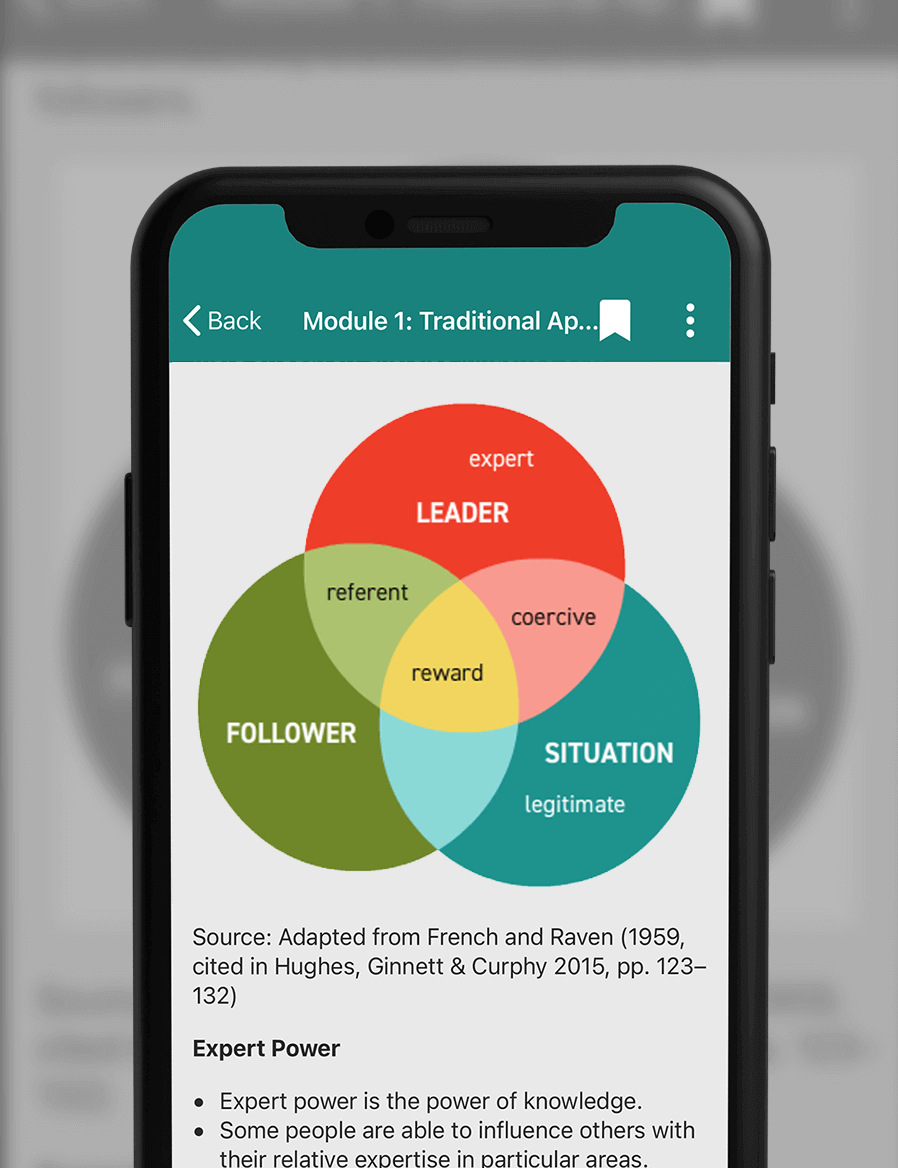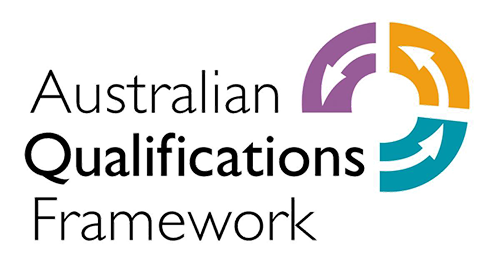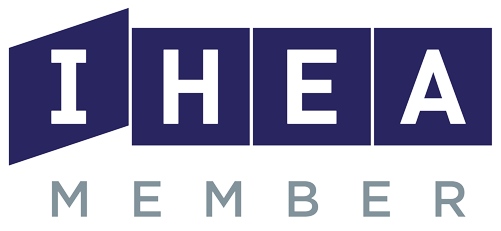The AIB MBA
Designed for busy working professionals, this fully online MBA course is highly flexible and delivered with interactive, bite-sized content and personalised student support.
Designed for busy working professionals, this fully online MBA course is highly flexible and delivered with interactive, bite-sized content and personalised student support.
The AIB MBA is a 100% online program that will provide you with the business and leadership skills you will need to thrive in an increasingly uncertain world.
Designed for busy working professionals, this fully online MBA course is highly flexible and delivered with interactive, bite-sized content and personalised student support.
With a strong industry focus, the AIB MBA equips you with contemporary leadership and management knowledge that can be immediately applied in business and the workplace as you progress in your studies.
Learn more: What is the MBA?
*see 20 Biggest Online MBA Providers, MBA News (July 2024)
The results of the 2024 AIB Global Alumni Insights Survey demonstrate the outstanding achievements of our former students and is a testament to their professional growth.
No matter what sector you’re in, innovation and technology have created a world that is rapidly changing. It has become increasingly challenging to have the most up-to-date knowledge and experience to stay ahead of the competition.
A Master of Business Administration degree is a highly-regarded postgraduate qualification that teaches foundational business and leadership skills, as well as specialist knowledge, providing you with a pathway to career success.
The AIB MBA is a practical MBA for working adults. With no exams, you’ll instead learn from the practical application of theory to real-life business problems, often based on your organisation or business. An approach designed for immediate career impact.
Our programs foster your ability to understand and apply leading business theories, critically analyse and solve problems, lead and communicate effectively, and make decisions to support the growth of your team and organisation.
Our MBA opens many doors with both current and prospective employers giving you more opportunities for career progression, higher salaries, starting your own business and more.
There’s no limit to what you can do with an MBA from AIB.
*Course duration is determined by entry pathway and study load. See details.
| Delivery | Online |
|---|---|
| Number of subjects | 9 core subjects and 3 elective subjects |
| Duration | 12 months accelerated or 2 years part-time* |
| Start dates | 12 intakes a year |
| Stages | 3 stages with 2 exit points |
| Entry requirements | Prior degree or prior experience |
Our online Master of Business Administration is comprised of 2 nested postgraduate qualifications, so should you need to exit the MBA early, you can still achieve a postgraduate qualification*.
The program is structured with the Graduate Certificate in Management (GCM) as an early exit qualification, the Graduate Diploma in Management (GDM) as a milestone, and the Master of Business Administration (MBA) as the final qualification upon completion.
*Interim awards need to be requested and are not granted automatically. For further details, refer to the Student Handbook.
^AIB’s part-time study is 1 subject per 6 terms annually. To complete the MBA in 12 months, eligibility criteria apply.
In today’s fast-moving business environment, our study schedule lets you study 6 subjects in a year and complete your MBA online in 2 years, even while you work. With the option to accelerate, you can study up to 2 subjects at once when life allows, subject to meeting concurrent study criteria. If life gets in the way of your studies, there is no need to worry – you can adjust your study timetable.
At AIB we run multiple intakes throughout a year so you can start the program when it suits you.
Each term runs for 8 weeks and during this period you’ll complete 1 subject. An 8-week period contains a mix of interactive assessments including, but not limited to, assignments, quizzes and evaluated forum participation along the way, plus one week to reflect and recharge.
Learning materials are made available 14 days prior to the subject start date so you can pre-plan your online studies around your family life, work and social commitments.
*The below timeline is an example only – assessment mix may change from subject to subject.
With the flexibility and convenience of 12 start dates every year you can start your MBA when it suits you.
You can choose from a wide range of specialisations and electives to tailor your MBA to suit your personal, career and business goals. If you don’t want to specialise in any particular area, that’s ok. Our general MBA option allows you to mix and match subjects to tailor your study program.
Submit your application and you’ll hear back from us within 1-3 business days.
There are 8 core subjects you’ll undertake prior to moving on to your electives, allowing you to tailor your experience to suit your personal, career and business goals. You’ll conclude your MBA with Project, the capstone subject.
Complete the 8 core subjects listed below. Additionally, you’re required to select 3 electives from the electives tab and complete the capstone Project.
The subject provides a scholarly and in-depth knowledge of the dynamics of leadership and how it applies to contemporary leadership practice.
On completion of this subject participants should be able to:
This subject provides comprehensive knowledge of the strategic management process and gives exposure to the concepts and frameworks that are used in understanding a company’s competitive position in domestic and international markets, and the development of new strategies.
On completion of this subject participants should be able to:
This subject discusses the importance and strategic role of marketing in today’s globalised and digital business environment. Students learn practical skills that impact on business growth, like how to analyse the market context in which a business or enterprise is operating, segment the market, select an appropriate target market, and recommend strategic and tactical plans that co-create value for the selected target market
On completion of this subject participants should be able to:
This subject provides an in-depth knowledge of issues critical for the efficient and effective management of operations in service, public, manufacturing, not-for-profit, and other sectors. The subject covers operations management principles, frameworks, and contemporary topics.
On completion of this subject participants should be able to:
This subject prepares students for effective financial management in organisations. At a foundational level, the subject introduces how a manager can interpret financial statements, identify trends and utilise financial tools and techniques to improve decision making, alongside non-financial considerations including ethics.
On completion of this subject participants should be able to:
This subject will prepare students for the continuously evolving nature of work in uncertain times and the challenges and opportunities that this presents for organisations in meeting the strategic needs of a diverse workforce.
On completion of this subject participants should be able to:
This subject examines the development, concepts, and significance of the concepts and practice of Corporate Governance, and organisational governance within the context of organisational capacity building.
Pre-requisites: Three AQF Level 8 subjects must be completed before attempting Corporate Governance
On completion of this subject participants should be able to:
This subject develops the critical skills, capabilities and knowledge required to successfully manage projects across all stages of the project life cycle, applicable to all industries: service, public, not-for-profit, private, and other sectors.
Pre-requisites: Three AQF Level 8 subjects must be completed before attempting Project Management, one of which must be Operations Management
On completion of this subject participants should be able to:
This subject provides an essential overview of Artificial Intelligence (AI) types and their strategic application and integration in industry that is transforming business practice. In the context of organisational leadership in the age of digital disruption, this subject explores the challenges and opportunities of AI as well as the capabilities, limitations and ethical considerations.
On completion of this subject participants should be able to:
The aim of this subject is to provide in-depth insight into the increasing dangers and frequency of cyber-attacks on businesses and government and how best to prevent or mitigate the damaging outcomes. The likely sources of attacks will be outlined along with the methods more commonly used, inherent weaknesses in systems, examine the risk factors and outline manager’s responsibilities. How to create policies designed to mitigate attacks and how to manage them are included along with disaster planning and recovery. This is not a technical subject on the detailed workings of attacks but rather a management approach to cyber resilience, cyber disaster planning and recovery methods.
On completion of this subject participants should be able to:
This subject provides an overview of business analytics concepts and their applications in the business environment.
On completion of this subject participants should be able to:
This subject provides scholarly, practical and in-depth knowledge of contemporary entrepreneurial professional practice and entrepreneurial mindsets. By exploring the key life cycle stages of an entrepreneurial venture and the drivers of entrepreneurial culture, students are provided with insights into the process of entrepreneurship and into developing the resource base needed to pursue entrepreneurial initiatives. The subject draws on experiential and collaborative learning to build and strengthen entrepreneurial capabilities.
On completion of this subject participants should be able to:
This subject takes the student through new product design from conception to launch of a new product or service. The subject aims to provide in-depth knowledge and application of traditional and innovative tools and frameworks used in a successful new product design process.
Pre-requisites: Marketing Management
On completion of this subject participants should be able to:
The subject provides scholarly and practical in-depth knowledge of the business practices, processes and management for external consultants, owners of consulting firms and those with expertise considering consulting as a profession who are wanting to start, run or scale a business consulting enterprise.
On completion of this subject participants should be able to:
The objective of the subject is to provide an integrated framework and analytical tools that are used by the firm managers to make financial decisions that improve firm value.
Pre-requisites: Financial Management
On completion of this subject participants should be able to:
This subject presents a detailed overview of the features of modern financial and monetary systems, and enables an in-depth understanding of complex institutions, markets, and securities that are part of them.
Pre-requisites: Financial Management
On completion of this subject participants should be able to:
The objective of the subject is to provide comprehensive theoretical and practical knowledge on investment management. The subject covers major theoretical concepts, namely, modern portfolio theory, diversification, and equilibrium models of security prices. The subject also includes macroeconomic and industry analysis, pricing of main financial derivatives, and evaluation of portfolio performance.
Pre-requisite: Financial Management
On completion of this subject participants should be able to:
This subject provides scholarly, practical, and in-depth knowledge to support and critically evaluate contemporary approaches to organisational learning and development (OLAD). Drawing on adult learning theory, students will be involved in diagnosing an organisation’s learning and development needs. Subsequently, they will gain an insight into the process of design, implementation, and evaluation of learning and development initiatives in line with the organisation’s strategic direction. Implications for fostering capabilities for the development of human capital for sustained competitive advantage will be examined.
On completion of this subject participants should be able to:
This subject explores how globalisation has influenced and impacted human resource management practices in multinational enterprises (MNEs).
Pre-requisites: Strategic Human Resource Management
On completion of this subject participants should be able to:
Managing Change focuses on organisational change: why it occurs, how it occurs, how it can be managed, and what forms it can take. The complexities of change present real challenges for managers and leaders and, hence, challenges for managers and leadership in times of change are also addressed.
Pre-requisites: Strategic Human Resource Management
On completion of this subject participants should be able to:
The subject highlights the importance of consumer behaviour and customer experience concepts and theories in understanding the consumer decision making process as well as the customer journey. The subject addresses knowledge and analytical skills to assess the influence of various factors in consumer decision making and understand the importance of integration and measurement of customer experience.
Pre-requisites: Marketing Management
There is an expectation that modern enterprises engage in digital marketing providing positive brand experiences for their customers and other stakeholders. Digital marketing is increasingly important to understand, because customers engage online and offline with brands. This subject is designed to provide students with an understanding of digital marketing. Students will learn about the various types of digital marketing as well as to how to plan, deploy, manage and evaluate a digital marketing strategy.
Pre-requisites: Marketing Management
On completion of this subject participants should be able to:
This subject provides a contemporary understanding of international business and its complexities including the role of multinational firms. Students will gain insights into the roles played by formal and informal institutions on the performance of their firm. Students will examine how countries trade with each other and how organisations implement various international strategies to compete globally and obtain competitive advantage.
On completion of this subject participants should be able to:
This subject focuses on the design of effective procurement and global logistics systems and how such systems can be improved during periods of uncertainty. It covers areas such as customer relationship management, warehousing and packaging, and transportation. It explains how these elements combine to form a logistics network. Students will analyse the impacts and opportunities of uncertainty on procurement and logistics management.
Pre-requisites: Operations Management
On completion of this subject participants should be able to:
Today’s business and economy happens in a global and circular supply chain. Successful organisations in various sectors (e.g. service, public, NFP, manufacturing) strategically collaborate with their local and/or global supply chain partners to gain competitive advantage and create more value for the end customers. Well-managed adaptive supply chains help them win and retain customers, unravel opportunities, and leverage digital trends to achieve and sustain long term value creation. This subject takes a strategic and global approach to Supply Chain Management and covers key principles, frameworks, and contemporary topics.
Pre-requisites: Operations Management
On completion of this subject participants should be able to:
Directed Study requires students to undertake a specific project to further their disciplinary study and theory application in addition to the final MBA Project. The Directed Study is an individual project which is supervised by one or more academic staff member(s), based on topics that are aligned with the discipline expertise offered at AIB. The topic and assessment pieces are developed in consultation with the academic supervisor(s). Meetings between the student and the staff member(s) are periodic and at the request of the student or the staff member(s). The staff member(s) may set milestones and timelines for the student to meet. The subject provides scaffolding for the design and development of an individual research project and for the application of theory in a practical workplace context. Please note, Directed Study is not intended to be a replacement for an existing subject.
Pre-requisites: All AQF Level 8 subjects.
On completion of this subject participants should be able to:
The objective of this capstone subject is to undertake a project related to the chosen area of professional focus. Students will identify an appropriate workplace or industry related research problem or opportunity, conduct a concise review of theories and frameworks, engage in identifying secondary data, analyse the data and present findings in a formal business research report.
Pre-requisite: A minimum of 10 MBA courses must be completed before attempting the Project (i.e. all 6 AQF Level 8 core subjects and at least 4 AQF Level 9 subjects.)
On completion of this subject participants should be able to:
*When scheduling your timetable, please note that some subjects have pre-requisites that must be successfully completed prior to commencing the subject.
For further information on specialisations or available elective units, view the MBA Subject Guide.
If you have completed any postgraduate level courses (AQF Level 8 and above) or Project Management Professional (PMP) and CPA certifications in the past, you may be able to apply for credit transfer. For further details, please refer to Articulation, Credit Transfer and Recognition of Prior Learning Policy and Articulation, Credit Transfer and Recognition of Prior Learning Procedure.
Rather than expecting you to fit around us, we’ve found innovative ways to make our subjects fit around you.
Our innovative Student Learning Portal is your ultimate digital resource for everything you’ll need to successfully complete your online MBA course with the flexibility to access your learning materials, videos, podcasts and other multimedia. You’ll engage with fellow students and have key concepts explained by your Online Facilitators in webinars and forums.
In addition to the Student Learning Portal, the myAIB app allows you to download modules and full subjects to view offline to save your cellular data, receive notifications for assessments and webinars, listen to audio versions of modules through Soundcloud and enjoy many other useful features.
The myAIB learning portal app is available on Google Play and on the Apple App Store.
An MBA is a journey. Sometimes you take the fast-track; sometimes you need to slow down. Our flexible study options help you achieve your dreams at your own pace. You’ll study each subject over eight weeks, with assessments along the way and a week to reflect and recharge. You can choose to accelerate your career by studying up to two subjects at once when life allows, subject to meeting our eligibility criteria. And if life’s commitments get in the way of your study or you simply need to hit the pause button, you can stop and start again when it suits you.
You can complete your MBA in as little as 12 months and up to 2 years part-time, subject to meeting our eligibility criteria.
We anticipate that you will spend about 150 hours per subject (or 15-20 hours per week) to complete your MBA.
Can you fit the required study time into your busy schedule? Try our online study time calculator.
You’ll be supported by 218 academic, student support and professional staff, who will be with you every step of your MBA journey.
Ever wondered what an MBA could be worth to you? Based on our graduate data, you can now see what the AIB MBA might mean for your income with our MBA ROI Calculator. Remember, before you make any financial decisions, you should get information and advice from qualified professionals regarding your personal circumstances and financial affairs.
You don’t need a degree to qualify for an MBA, your experience counts!
Applicants must have ONE of the following:
Our programs are accredited by the Tertiary Education Quality and Standards Agency (TEQSA) within the Australian Qualifications Framework (AQF), meeting Australia’s highest education standards, and by the National Centre for Management Accreditation (NCMA) of the Canadian Institute of Management (CIM). Additionally, AIB’s MBA and MBA (HR Management) awards are accredited with the Australian Human Resource Institute (AHRI).
AIB’s MBA is highly regarded both nationally and globally, and recently achieved a Tier One status for the fourth year running, ranking #7 nationally and #25 globally in CEO Magazine’s 2025 Online MBA Rankings.
AIB is recognised by various professional, academic and industry bodies.
When you graduate with an AIB degree, you become a lifelong member of the school’s diverse and highly skilled alumni network, comprised of over 18,000 business school graduates with over 25,000 business school qualifications awarded globally.
Our graduates come from over 100 countries around the world! From Australia and Canada to Sri Lanka and Trinidad & Tobago – the AIB alumni community is a truly global network of professionals.
Our alumni work for some of the world’s most well-known brands and are active across all industries, including financial services, government, manufacturing and logistics, healthcare, education, information technology, mining and energy, consulting, engineering, not-for-profit, public sector and more.
Note: All graduate, student and academic head-count numbers were true as of April, 2025.
At AIB, you’ll have access to a range of study resources designed to strengthen your academic skills and support your success beyond the classroom. From day one, you’ll be supported by our expert academic team – including a comprehensive Orientation to study, Online Learning Facilitators, Subject Coordinators, Academic Skills Advisors and Librarians. Plus, we’ll arm you with tools with a range of tools, including:
There are multiple entry pathways to be eligible to study your MBA at AIB, you just need to meet one of the following:
For applicants from non-English speaking regions and/or who have studied in a foreign language, AIB has an English language proficiency requirement that needs to be met in order to be accepted into the MBA. Speak to your Course Advisor about the variety of ways your English language proficiency can be demonstrated.
For further details regarding eligibility criteria, follow this link.
Applying to study with AIB is as easy as 1-2-3.
Once you’ve accepted your letter of offer, you’ll be well on your way to becoming an AIB student! The process from here is just as easy; our enrolment tracker will lead the way…More information on entry requirements including English language requirements can be found on our website.
On average, most students will need to study for around 150 hours to complete each MBA subject. That means you will need to be able to schedule 15 – 20 hours per week in your calendar. Keep in mind that some weeks you may need a little more time and some weeks you may need a little less and everybody is different.
If you’re not sure, why not use our MBA Time to Study Calculator. It’s a quick way to look at your study opportunities each week and whether you have enough hours per week to do an MBA. Even with work, family and social commitments, you might be surprised how much study time you can fit in if you put your mind to it.
If you have completed study at an Australian equivalent postgraduate level, then you may be able to apply for credit towards specific subjects. Before you apply, please refer to the Programme Exemptions document which lists all qualifications for which AIB has a standing articulation agreement with another institution or which we have pre-assessed for our precedents another institution’s qualifications. The maximum amount of credit which can be granted for these qualifications against AIB courses (MBA) is shown in the table. The table is by no means exhaustive, as AIB can also assess qualifications from institutions which are not represented here via our standard exemption application process.
You should also refer to the Articulation, Credit Transfer and Recognition of Prior Learning Policy and Procedure on the AIB Policies webpage for more information.
The online enrolment form contains a link to the specific subject exemption application form which you will need to complete and submit to your course advisor as soon as possible. If you’re interested in applying for credit transfer, you must apply before you start your Course. We recommend that you submit your application as early as possible in the enrolment process so that any credit can be applied before you start (this will also avoid situations where you’ve studied something for which you could’ve gained credit). To kick off the process, tick “yes, I intend to apply for credit transfer” when completing your online application form.
If you are successful in being granted credit towards AIB subjects, you should note:
Recognition of Prior Learning (RPL) is the formal recognition of learning demonstrated through existing knowledge and skills. To apply for RPL, you’ll need to compile a portfolio which clearly demonstrates and provides evidence that your existing learning matches the learning outcomes of an AIB subject. It is important to note that RPL is only available for complete higher education subjects and is not offered for parts of subjects.
You should refer to the RPL Guide for Applicants and the Articulation, Credit Transfer and Recognition of Prior Learning Policy and Procedure on the AIB Policies webpage for more information.
If you’re interested in applying for recognition of prior learning, you must apply before you start your Course. We recommend that you submit your portfolio as early as possible in the enrolment process so that any credit can be applied before you start (this will also avoid situations where you’ve studied something for which you could’ve gained credit). To kick off the process, tick “yes, I intend to make RPL claim” when completing your online application form.
If you are successful in being granted credit towards AIB subjects, you should note:
AIB is one of the most affordable premium higher education providers. We accept an array of different payment options for your convenience including:
For Australia, if you’d like to access FEE-HELP, you can learn more here. Or, if you are residing in Canada, you can learn more about financing specific to Canadian students.
We are happy to answer any questions you might have about studying with us. Feel free to fill out a form and one on our Course Advisors will be in touch either by phone or email to answer your questions.
Alternatively, you can call us on 1300 304 820.
We acknowledge the Kaurna people, the Traditional Custodians of the land on which AIB is located, and pay our respects to their Elders past, present and emerging.
Our students are across many lands, and we recognise and respect all cultural heritage, beliefs and relationships with the land. We acknowledge Traditional Custodians of the country throughout Australia and on all the lands on which our students study.







